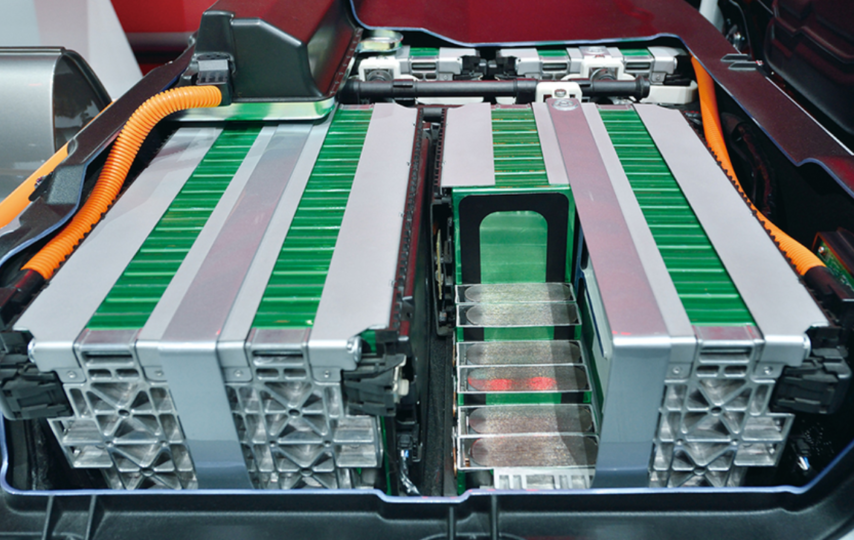Hello, anglers! As someone who relishes the calm of the water and the thrill of the catch, you know the importance of each piece of your gear. Critical among them: the electric reel battery. Without a reliable and powerful battery, you might as well be casting lines in your backyard. Here, we fish out the leading brands and battery types in today’s market, giving you the insight needed to select a battery that won’t let you down when you’ve hooked the big one.
To ensure you’re well-informed, this article will equip you with everything you need to invest in the right electric reel battery. So let’s dive into the world of batteries and emerge ready to make a purchase as savvy as your fishing techniques.
Understanding Electric Reel Batteries: The Basics
Electric reel batteries are the invisible champions behind every successful fishing expedition where electric reels come into play. Their job is simply to power the reel consistently, allowing you to focus on the fish rather than fretting over your equipment. Knowing the essentials about these batteries can make the difference between a regular day on the water and an extraordinary one.
Key characteristics that point to a high-quality electric reel battery include:
- Capacity: Measured in ampere-hours (Ah), indicating how long the battery can supply a certain current.
- Voltage: Defines the electric potential the battery provides, affecting the power output of your reel.
- Durability: High resistance to wear and tear ensures your battery can handle the challenging marine environment.
- Charge Time: How quickly the battery can be charged and ready for use.
- Compatibility: Ensuring that the battery fits and works with your specific type of electric reel.
For those looking to go deeper into battery education, there’s ample reading available that can give you a more foundational understanding. Check out Battery University for a comprehensive dive into how batteries work and what makes some better suited for angling than others.
By grasping the basics of electric reel batteries, you are better prepared to comprehend why certain brands lead the market and what advantages and drawbacks different battery types offer. With this knowledge, you’re on your way to choosing a battery that aligns perfectly with your fishing needs and preferences.
Market Giants of Electric Reel Batteries: Who Leads and Why
Among electric reel battery brands, Daiwa stands out. Their expertise has positioned them at the forefront of the field for delivering consistent power and durability in their products.
Top-tier batteries, including those by Daiwa, share several important features:
- Consistent power delivery: Ensures a stable experience without interruptions.
- Long life cycle: They last many uses before you need to replace them, making them cost-effective in the long term.
- Safety features: Including protections against overcharging, overheating, and water exposure.
For an in-depth look at what makes a battery stand out, it’s worth looking at third-party reviews or product pages, like the insights provided by TackleDirect when they discuss electric reel batteries.
Comparing Battery Types for Electric Reels: Benefits and Downsides
Choosing the right type of battery for your electric fishing reel can have a big impact on your fishing experience. Here’s a breakdown of the most common battery types:
- Lithium-ion Batteries:
- Benefits:
- Lighter weight, which makes for easier handling and transportation.
- High energy density, meaning more power in a smaller package.
- Quicker recharge times compared to other battery types.
- Downsides:
- Generally more expensive initially.
- Require careful charging and storage to maintain performance.
- You can learn more about Lithium-ion batteries in fishing contexts from resources like Wired2Fish.
- Benefits:
- Lead-acid Batteries:
- Benefits:
- More cost-effective up front, making them accessible for many anglers.
- Durable and reliable with a proven track record in various applications.
- Downsides:
- Heavier, which could be a drawback for smaller boats or longer transport.
- Lower energy density, necessitating larger size for equivalent power.
- The trade-offs of Lead-acid batteries for angling use are explored in detail by Battery Tech Online.
- Benefits:
As you compare these options, consider the specifics of your fishing habits and the needs of your fishing setup. No one-size-fits-all answer exists, and what works best for someone else might not be optimal for your fishing experience. Use the detailed information described in the provided links to make an educated decision on the best battery for your electric fishing reel.
How to Pick the Right Reel Battery: A Buyer’s Guide
When searching for the perfect electric reel battery, it’s important to consider several factors:
- Weight Consideration: Assess the weight of the battery. A lighter option may benefit the balance and handling of your reel. For a comprehensive discussion on the benefits of lighter batteries, refer back to the Comparing Battery Types for Electric Reels: Benefits and Downsides section.
- Reel Compatibility: It’s crucial that the battery’s voltage matches your reel’s requirements to prevent equipment damage.
If you’re looking for more guidance on choosing electric reel batteries, visit Abyss Battery for their thoughts on the subject and check out some of their high-quality reel batteries while you’re at it.
By considering these aspects, you’ll find a reel battery that syncs well with your power, durability, and compatibility needs for your preferred fishing style. A bit of research allows for many enjoyable and successful fishing adventures.
Battery Maintenance and Safety: Maximizing Longevity and Protection
Maintaining your electric reel battery correctly will extend its life and ensure safety. Follow these tips to make the most of your investment:
- Clean Connections: Keep battery connections clean and tight for efficient power transfer. For a quick how-to, check this How To Clean Your Battery Terminals from Christian Brothers Automotive.
- Avoid Extreme Temperatures: Keep your battery away from very hot or cold environments to maintain its performance and shelf life.
- Proper Storage: Follow the manufacturer’s storage recommendations when not using your battery.
- Safety Gear: Use gloves and eye protection while handling batteries, particularly if they’re damaged.
For additional maintenance advice, you’re welcome to consult Bass Pro Shops. And don’t forget, the Safety 4 Sea provides valuable information on battery safety at sea.
Following these guidelines helps to ensure your battery is as reliable as it is long-







